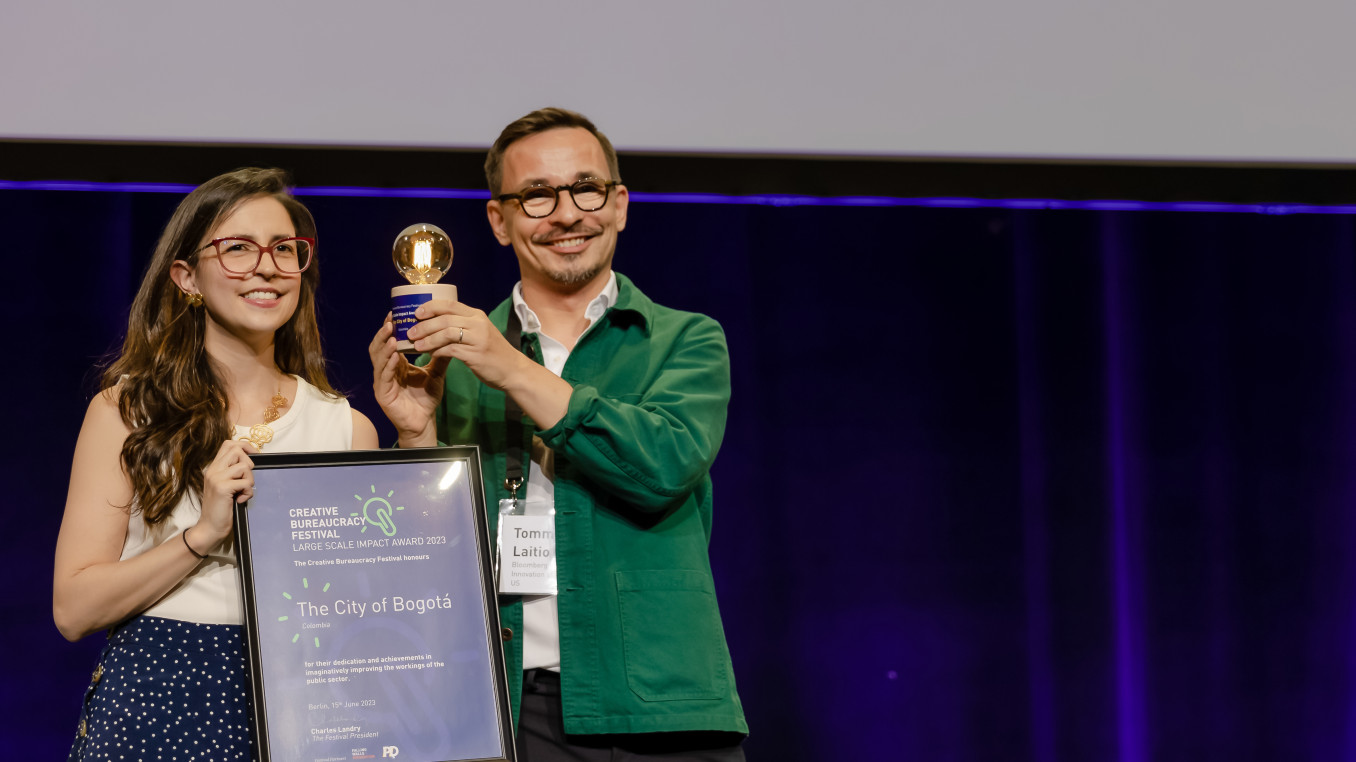

Some people stick to the rules. These people change them.
Award
They are unsung heroes. Fighters for the common good. Unconventional thinkers. But rarely do they receive the praise they deserve. We want to change this and celebrate them.
This is why, every year, Charles Landry and the team of the Creative Bureaucracy Festival identify people in government or other fields who have made a difference and who have contributed to making the lives of citizens like you and us better. At each Creative Bureaucracy Festival, we honor these changemakers and innovators with the Creative Bureaucracy Award – a badge of honour for those striving to make good things happen in the public sector but who are overlooked far too often.
Creative Bureaucracy Festival Award 2024
We are delighted to introduce the remarkable recipients of the Creative Bureaucracy Award 2024. Each of these three individuals has demonstrated extraordinary dedication to improving the lives of citizens, making significant contributions.
Matthias Ecke


The award is being presented to Matthias Ecke, politician and public administration employee, for his commitment to democracy. Matthias Ecke was physically attacked and severely injured during the election campaign. Attacks of this nature serve to intimidate democratic society, but for Matthias Ecke, giving up was never an option, and he continues to advocate for a democratic, united, and strong Europe and a cohesive society. Through his unwavering dedication, he stands against right-wing extremism and violence, sending a clear message against hate and incitement and for democracy.
Sophie Howe


Sophie Howe is recognized for her pioneering work to protect future generations, particularly as the world’s first Future Generations Commissioner in Wales. Engaged in politics from a young age, she became Wales' youngest councillor at 21, focusing on equality and youth. In 2016, she was appointed to ensure the goals of the Well-being of Future Generations Act were met. Since leaving the role in 2022, she has supported similar reforms globally.
Christiana Bukalo


Christiana Bukalo is honored for her dedication to addressing the challenges of stateless individuals. As founder of Statefree, she created a platform for community and advocacy for stateless people globally. Born stateless in Munich, her personal experience inspired her to build a space where stateless individuals can connect and fight for their rights. Her work has raised awareness, mobilizing public and political support to improve the lives of stateless people.
Creativity in public administration enables us to build unimagined solutions for complex challenges, such as the highly overlooked issue of statelessness. It broadens our perspective, allowing us to create inclusive structures for those who have been kept invisible for too long, empowering us to provide them with equitable access to human rights.
Christiana Bukalo
